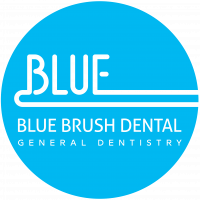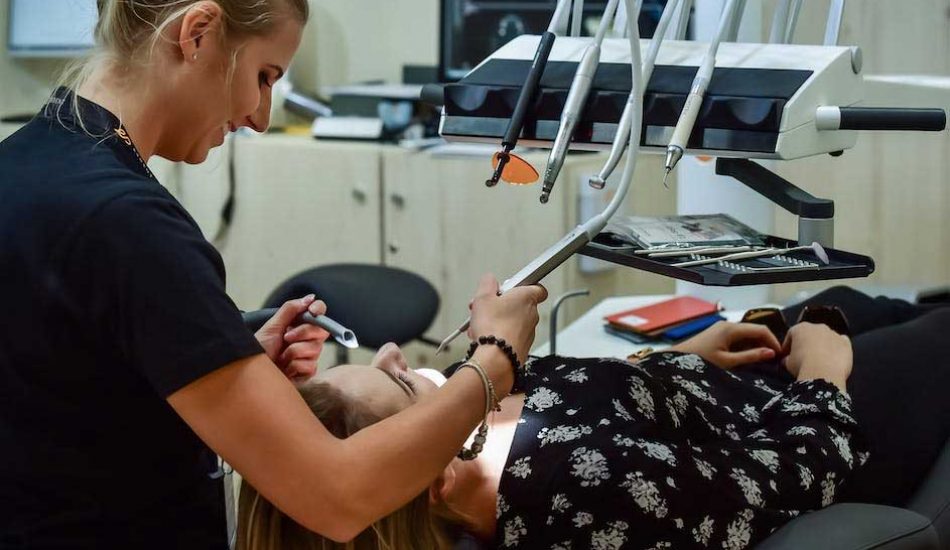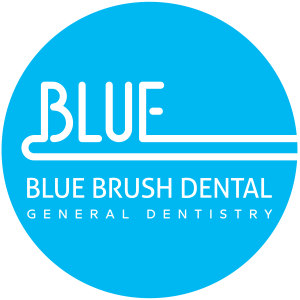Many people are unaware of their own bad breath, which can be embarrassing and even detrimental to personal and professional relationships.
Halitosis is the medical term for bad breath and can be caused by various factors, including poor oral hygiene, dry mouth, certain foods and drinks, tobacco use, and underlying medical conditions.
While there are easy remedies for some cases of halitosis, such as brushing and flossing twice a day, using mouthwash, and avoiding foods and drinks that cause bad breath, it is crucial to consult a dentist to define the underlying cause.
In some cases, halitosis may be a sign of a more serious medical condition, like gum disease, diabetes, or kidney disease.
Here are the five surprising things that cause bad breath
1. Eating certain foods can directly impact your breath freshness
Garlic, onions, and coffee are typical foods that can cause temporary bad breath. This is because these foods contain compounds broken down by bacteria in the mouth, releasing sulfurous gasses with a strong odor.
If your bad breath is caused by the foods you eat, brushing and flossing thoroughly after meals should help remove the food particles and bacteria causing the problem.
However, brushing and flossing can only temporarily freshen your breath. The odor will not go away completely until the food particles and compounds causing it have been removed from your body.
Here are some additional tips for preventing bad breath caused by food:
- Avoid eating foods with strong odors before important meetings or social events.
- If you eat foods with strong odors, drink plenty of water throughout the meal and afterward to help rinse the food particles.
- Chew sugar-free gum or hard candy after meals to stimulate saliva production and help freshen your breath.
Talk to your dentist if you are concerned about bad breath caused by food. They can help you to develop a personalized plan to prevent and manage the problem.
2. You have an Oral Health Problems
The typical cause of bad breath is poor oral health, including tooth decay and gum disease. These problems can be difficult to self-diagnose, but a dentist can identify them quickly and easily. If you have bad breath, it is likely caused by tooth decay or gum disease.
Tooth decay is mainly caused by bacteria and plaque eating away at your tooth enamel. The longer tooth decay goes untreated, the worse your breath is likely to be.
Gum disease is an inflammation of the gums that causes them to become red, swollen, and tender. It can also lead to bleeding gums and tooth loss. Gum disease is often caused by poor oral hygiene, such as not brushing and flossing regularly.
3. You have a Poor Oral Hygiene
Poor oral hygiene causes most halitosis cases. This means that not brushing your teeth twice daily for two minutes each time and not flossing once daily can lead to bad breath. When you don’t remove plaque and food particles from your teeth and gums, bacteria can build up and cause cavities, gum disease, and other infections.
These infections can produce volatile sulfur compounds (VSCs), which are the gasses that cause bad breath. Brushing and regularly flossing are vital for good oral health, as are dental checkups and cleanings every six months.
Your dentist can remove plaque and tartar you can’t remove at home, and they can also diagnose and treat any underlying dental problems that may be causing your bad breath.
Here are some additional tips for good oral hygiene:
- Use a soft-bristled toothbrush and fluoride toothpaste.
- Brush all surfaces of your teeth, including the front, back, and tops.
- Remember to brush the surface of your tongue.
- Replace your toothbrush every three to four months or sooner if the bristles are frayed.
- Floss once daily to remove plaque and food particles between your teeth.
- Use a mouthwash that contains fluoride and cetylpyridinium chloride (CPC) to help kill bacteria and freshen your breath.
4. You are Smoking
Smokers are notorious for their bad breath, which is caused by the chemicals in tobacco smoke and the bacteria that thrive in the mouths of smokers.
In addition to halitosis, smoking can also stain and damage teeth, requiring costly dental repairs. Smoking significantly increases your risk of developing oral cancer, a deadly disease that is often only detected by experienced dentists.
5. Medication Effect
For some reason, medications might be the culprit of your bad breath. Many medications can cause dry mouth, a significant cause of bad breath.
If you are taking medication that dries out your mouth, talk to your doctor about switching to a different medication or using other methods to increase saliva production. Your dentist can also help you develop a plan to keep your teeth clean and free of plaque and buildup.
Examples of medications that can cause dry mouth
- Antihistamines
- Decongestants
- Diuretics
- Antidepressants
- Antipsychotics
- Pain relievers
- Antihypertensives
Talk to your doctor or dentist if you are concerned about medication-induced bad breath. They can help you find the best way to manage your condition and keep your breath fresh.
Some tips for managing medication-induced dry mouth
- Drink plenty of water throughout the day.
- Chew sugarless gum or hard candy to stimulate saliva production.
- Use a humidifier at night.
- Avoid caffeine and alcohol, which can dehydrate you.
- Brush and floss your teeth twice daily and see your dentist for regular checkups and cleanings.
Diagnosis
Dentists diagnose halitosis by smelling your breath from your mouth and nose and rating it on a scale. They may also scrape your tongue and evaluate the odor. If necessary, they may use a halimeter device to measure the concentration of volatile sulfur compounds (VSCs) in your breath. VSCs are the main compounds responsible for bad breath.
General Lifestyle Habits to Avoid Bad Breath
Practicing good oral hygiene and avoiding certain lifestyle habits to prevent bad breath, also known as halitosis, is essential. Here are some tips:
- Brush your teeth twice a day. Use a soft-bristled toothbrush and fluoride toothpaste. Brush for two minutes each time, paying particular attention to the areas where plaque and food particles tend to accumulate, such as along the gum line and between the teeth.
- Floss once a day. Flossing helps to remove plaque and food particles between the teeth, where your toothbrush cannot reach.
- Use a mouthwash. Antibacterial mouthwash can help to reduce the bacteria that cause bad breath.
- Clean your tongue. Your tongue can harbor bacteria that contribute to bad breath. Use a tongue scraper or maybe a soft toothbrush to gently clean your tongue daily.
- Drink plenty of water. Staying hydrated helps keep your mouth moist and prevents dry mouth, leading to bad breath.
- Eat a healthy diet. Avoid sugary foods and drinks, which can highly contribute to bad breath. Eat lots of fruits and vegetables. It can help to freshen your breath.
- Quit smoking. Smoking causes dry mouth and leaves a lingering odor.
- See your dentist regularly. Get professional dental cleanings and checkups every six months. Your dentist can define and treat any underlying oral health problems that contribute to bad breath.
If you have chronic bad breath, consult and talk to your trusted dentist even after following these tips. They can help you determine the cause of your halitosis and recommend appropriate dental treatment.
Vitamins can help you to get rid of bad breath
For some reason, vitamin deficiency might be the cause of having a bad breath. So, taking the vitamins that help your gum and teeth healthy is your next treatment to consider. While vitamins alone cannot cure bad breath completely, eating a healthy diet with the essential nutrients can help keep your mouth and teeth healthy and reduce your risk of bad breath.
Here are some key nutrients that are important for oral health:
- Vitamin A
- B vitamins
- Vitamin C
- Vitamin D
- Vitamin E
- Iron
- Calcium
- Potassium
- Zinc
- Phosphorus
Avoid quick-fix supplements and vitamins. Many of the nutrients you need can and should be obtained from food. It is also important to follow the correct dosage for each vitamin, as taking too much of certain vitamins can be toxic.
It’s Time to Talk to Blue Brush Dental About Bad Breath
Bad breath can be embarrassing and can make you feel self-conscious. If you can’t figure out the cause on your own, it’s time to talk to the experts at Blue Brush Dental.
Our dentists and specialists will ask questions about your lifestyle, medications, and brushing habits to understand your oral health better. We’re here to help you identify the underlying reason for your bad breath and develop a dental treatment plan to address it.
There’s no need to be embarrassed about talking to us about your bad breath. We’re here to help you improve your oral health and overall well-being.
Don’t let bad breath hold you back. Make an appointment with Blue Brush Dental today!
A Path to Fresher Breath
A significant number of individuals may not realize they have unpleasant breaths, which can lead to embarrassment and potentially harm their personal and career connections.
While there are easy remedies for some cases of halitosis, it is crucial to consult a dentist to define the underlying cause. A dentist can perform a thorough examination and diagnosis and recommend the best course of treatment to improve your breath and your oral health.


